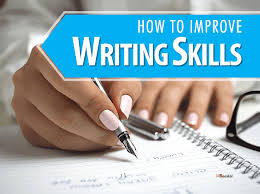Hello everyone!
December is already here and with it comes winter, the festive season and (finally) the end of 2020!
Have you answered the questions from the previous blog post? I hope so! Today we’re going to discuss the answers.
These were the questions to be answered:
- Has the writer answered the questions fully?
- Was the text easy to read?
- Was it well organised both in paragraphs and using connectors?
- Look for adjectives and adverbs in the text, what sort of information do they give you? Why are they important?
- How does the reviewer describe the action in the book? Have you learned about main characters and plot twists?
The answer to questions 1, 2, 3 and 5 is “YES” but, how about question 4? Were you able to find the adjectives used and identify why they were important? Let’s take a look at the text again, but this time you’ll find the adjectives (or words functioning as adjectives) highlighted in yellow:

The words in yellow are used to describe the nouns that accompany them. For example “enormous” and “inflatable” describe the noun “turkey”, not only clarifying that we’re talking about a plastic one but also conveying the idea that it’s floating in the air. But, what about the words in green?
As you have probably guessed, they are not adjectives but different parts of the speech (especially nouns) that give us extra information and help us draw the appropriate picture in our heads. This is called descriptive language. Let’s take a look at it!
Thousands of people indicates the amount of people at the parade. It is used instead of “There were a lot of people at the parade”
Spiral of anxiety, pain and blame. This series of nouns (spiral, anxiety, pain and blame) could have easily been omitted or replaced by adjectives like “the father becomes nervous and scared”. However, our first option seems, not only more natural but it also provides a clearer image of what the situation was like while letting on to the idea that the nightmare the main characters are living won’t end any time soon.
Many. We can also use quantifiers to indicate amount but not a specific number.
Undergraduate. By using this word we are letting the readers know that Miren has not finished her degree and, maybe even making them curious about why that is relevant.
Real page-turner. This is more of an expression than a part of speech in itself but it perfectly transmits the desired image to the reader: one of a person turning page after page trying to figure out what happened to Kiera Templeton.
As you can see, sometimes nouns are more important than adjectives when we are writing a review or article, do you dare give it a go? We invite you to write your review following the instructions given on the previous post and hand it to your ES teacher!
I really hope you have enjoyed this post. Leave us a comment or pay us a visit to learn more about any area of the English language!
Have a great december!




